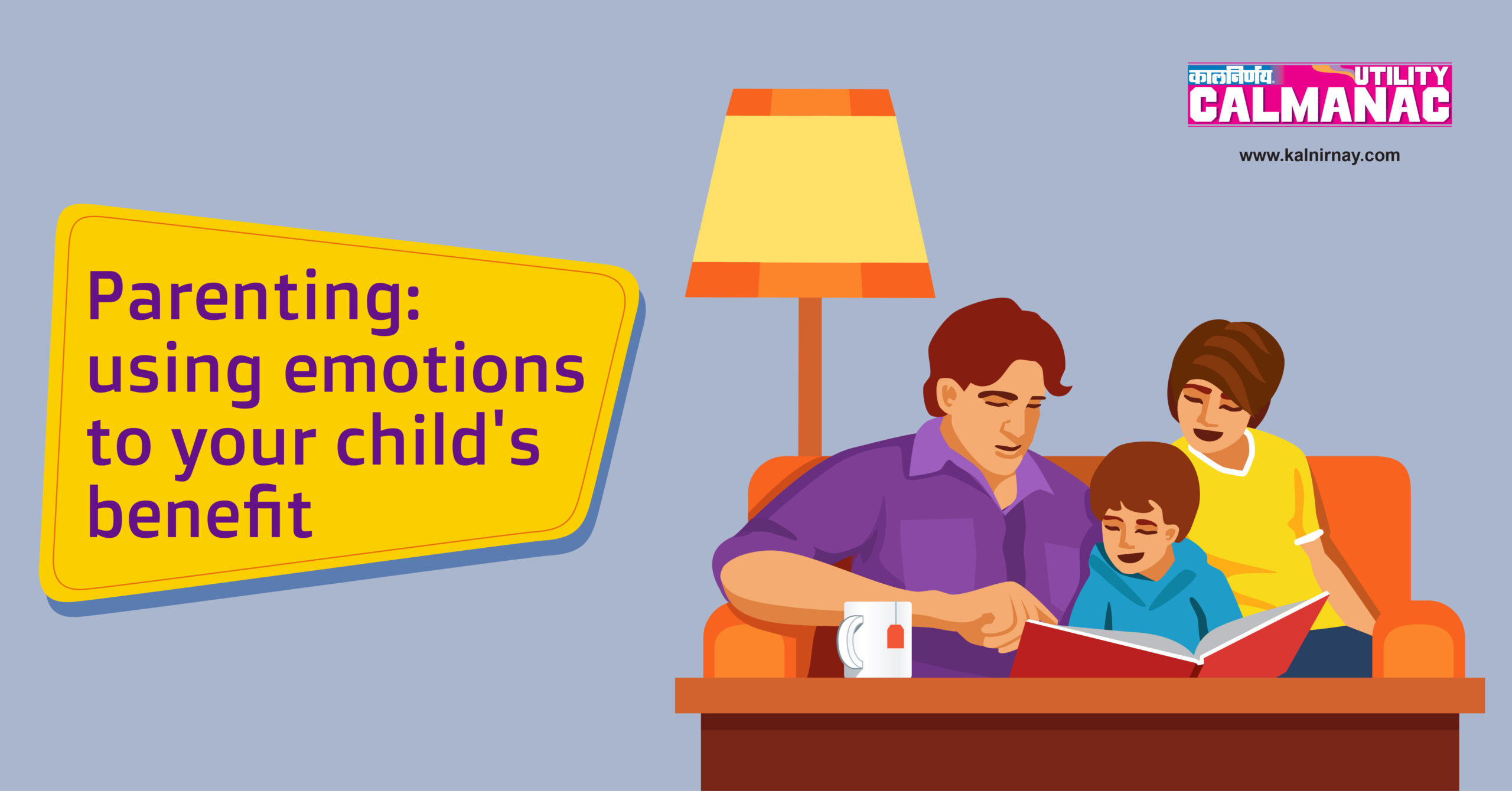The modern world sees constant changes which have considerably increased the challenges before parents. An evolved childhood demands scientific techniques and strategies to deal with children.
Raising a child can be a daunting task. A child isn’t born with a conclusive user manual. What works for another. As a parent, you have to learn as you go and create your own path. The emphasis is on making the right choices that work for your child.
The best way to get the best out of this journey is to handle uncertainty in an emotionally intelligent manner. The concept of emotional intelligence is redefining parenting to suit the changing times.
The modern world sees constant changes which have considered before parents. An evolved childhood demands scientific techniques and strategies to deal with children. This also means having a meaningful dialogue with the child and focusing on ‘quality time’.
Parenting classifies by emotions:
- Dismissing (Low warmth, Low control)
- Disapproving (Low warmth, High control)
- Laissez-Faire (High warmth, Low control)
- Emotion Coach (High warmth, Highcontrol)
Each of these parenting styles has certain effects on children.
- The Dismissing Parent (Low warmth, Low control)
Characteristics:
- Treats a child’s feelings as unimportant trivial.
- Disengages from or ignores the child’s feelings.
- Characteristically uses distraction to shut down a child’s emotions.
- Does not try to solve problems with the child.
- Tries to shrink the problem down to size, encapsulate it to be forgotten.
Effects on children:
- They learn that their feelings do not matter.
- They could think that something is inherently wrong with them because of the way they feel.
- They may have difficulty regulating their own emotions.
- They learn to ignore their feelings and can’t deal with emotions.
- The Disapproving Parents (Low warmth, high control)
Characteristics :
- Judges & criticizes the child’s emotional expressions.
- The children are reprimanded, disciplined or punished for expressing emotions like fear, anger & sadness.
- Beliefs, emotions make people weak, children must be emotionally tough for survival.
- Believes negative emotions are unproductive & a waste of time.
Effect on children :
- Kids start to think that intimacy or expression of emotions is a high-risk proposition; it can lead to humiliation, abandonment and pain.
- They may think that anger causes embarrassment to others.
- The Lassez- Faire Parent : (High warmth, Low control)
Characteristics :
- Freely accepts all emotional expression from the child.
- Offers comfort to the child experiencing negative feelings.
- Guides the child’s behaviour.
Effect on children:
- They don’t learn to regulate their emotions.
- They have trouble concentrating; forming friendships and getting along with other children.
- They often lack the ability to calm themselves when they are angry, sad and upset.
- Parents as Emotion coach : (high warmth, High control)
Characteristics :
- Uses the child’s negative emotions as an opportunity for intimacy.
- Can tolerate spending time with the sad, angry or fearful child; does not become impatient with the emotion.
- Is aware of & values his or her own emotions.
- Does not make fun of the child’s negative feelings.
Effect on children:
- They learn to trust their feelings, regulate their own emotions and solve problems constructively.
- This style would directly influence EQ components such as emotional self-awareness, assertiveness, empathy, interpersonal relationships, flexibility, impulse control & self-regard.
- They tend to be responsible.
- Can communicate feelings with others.
The most effective parenting technique, of course, is the Emotion Coach. It should be a regular way of parenting and not just limited to cries. With this, you should be able to:
- Teach children how to correctly identify and label their feelings. This should include variations of sad, glad, and happy such as frustration, excitement and identify the real origin of these feelings.
- Helping children perceive other’s feelings and appropriately responding to them. For eg, frustration means something is hard to accomplish. The appropriate response to each feeling will be unique.
- Helping children deal with their feelings in an appropriate manner. Help them see and understand other’s point of view.
- Helping children to build good relationships.
- Teaching constructive and creative problem-solving skills.
- How do you use the Emotion Coach process:
- Become aware of a child’s emotion.
- Listen emphatically, validating the child’s feelings.
- Help the child find words to label the emotion they experience.
- Set limits, while exploring strategies to solve the problem at hand.
While solving problems:
-Find the goal of the behaviour –WHAT DID YOU WANT?
- Help child verbalise actions taken towards the goal- WHAT DID YOU DO TO GET IT?
-
Assess effectiveness – HOW DID THAT WORK?
-
Examine the full range of behavioural options.
-
Choose the most effective option.
In conclusion, being an emotion coach to your children will help them become independent, caring and responsible human beings. Which is truly the need of the hour!
–Dr. Sandip Kelkar, MD DC

